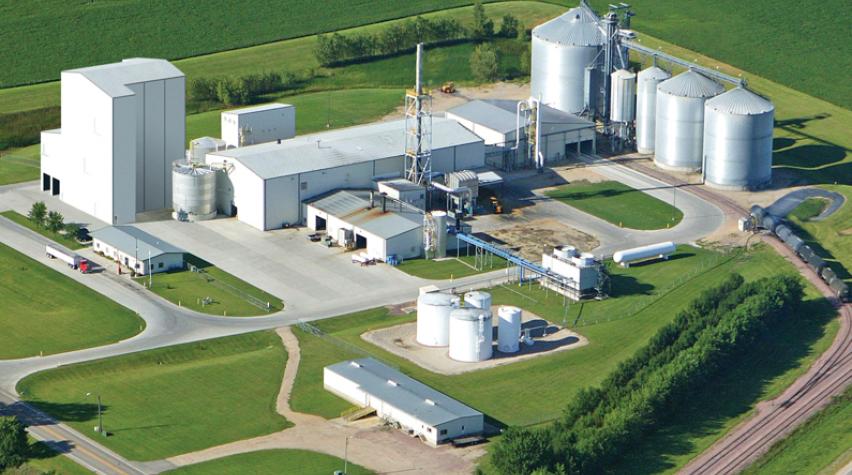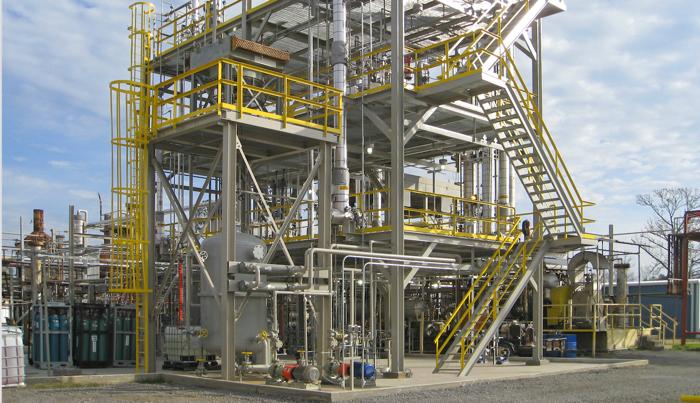
A four-year legal slugfest over the future of isobutanol is suddenly over. And everyone is still standing, and smiling, except any lawyer who considered the bitter dispute a license to print money — forever.
On Monday, Gevo, based in Englewood, CO, and backed by the French oil company Total, and Butamax, a Wilmington, DE, joint venture between BP and Dupont, ended their long-running patent dispute for the production of bio-based isobutanol (see press release).
This was a stunning about-face. Both companies had been suing each other since 2011. At one point, Gevo's CEO Pat Gruber said that more than 10 lawsuits were underway, and the litigation was torching 30 to 40 percent of Gevo’s monthly expenditures.
What were they fighting over? Huge future markets.
Isobutanol, a four-carbon chemical cousin of ethanol's two-carbon atoms, can be blended with gasoline at up to a 16 percent ratio for use in engines (pushing out the dreaded blend wall). As a fuel, it can be transported in existing infrastructure and does not require flex-fuel vehicle pipes and hoses. It has about 4 percent less energy density than gasoline, but that’s hard to notice compared to ethanol’s 27 percent drop compared to gas.
It also can be turned into jet fuel, solvents and other chemicals such as paraxylene used to produce plastic pop bottles.
Pleading for sanity
Ironically, just three months ago, with no apparent end to the legal battle, bio-industry insiders pleaded for the two companies to forge an agreement, which of course, looked impossible at the time. They sketched out the problem in Biofuels Digest:
Both share many similarities: modified yeasts, proprietary separation technologies, significant patent portfolios. Perhaps it’s not surprising then that their patent portfolios overlap. What is surprising is that litigation over isobutanol intellectual property has gone to the US Supreme Court and still ownership somehow remains unresolved.
The writers felt it was time for the two combatants to make peace and cross-license their technologies and work together to develop the market before it died. They went on to paint the obvious implosion if the legal battle raged on in the courts:
What has been lost in this battle is that they need each other to succeed...if something big doesn’t change soon isobutanol will join the list of other great ideas that never made it. We might as well call Butamax, Betamax and the Gevo-lution, DEVO-lution.
Fortunately — just in the nick of time — the settlement ended all of the lawsuits and the legal expenses have slowed to a trickle. “It is the equivalent of putting money on our balance sheet that we can use for other things,” Gruber said.
Following the blueprint
And just as the insiders counseled, under the new agreement, Gevo and Butamax have cross-licensed all of their technologies and patents to each other.
The royalty structure gives each company explicit incentives to expand separate market segments for isobutanol — for the benefit of both companies. Also, no royalties will be paid by either company for the first 30 million gallons produced annually by each company or for any sales as off-road vehicle fuel or to make solvents.
The licensing leaves some areas untouched: the two companies will not exchange or utilize each other’s proprietary microorganisms; both process designs will include different product recovery systems.
Any doubts about the scope of this agreement were put to rest by Gevo's CEO, who optimistically said, “That is the strange thing about this and the world of business — they are now our friends, " reported The Star Tribune in Minnesota. “We wish them success. Go, Butamax, go, and develop the marketplace. That makes more markets for us.”
The agreement effectively splits the transporation market into two parts. Butamax will take the lead winning regulatory approvals to open up markets for isobutanol-blended gasoline in on-the-road vehicles. Butamax has conducted research with Underwriters Laboratories (UL) and demonstrated that these blends can be used safely in fuel-storage and dispensing equipment. This should clear the way for government agencies to approve dispensing biobutanol-gasoline fuel blends in the US.
Aviation's open arms
Meanwhile, Gevo will develop the jet fuel market, where it has been producing and selling alcohol-to-jet fuel (ATJ) derived from isobutanol since 2011.
Currently, Gevo’s ATJ is produced at its demo biorefinery in Silsbee, TX, using isobutanol produced at its Luverne, MN, fermentation facility. Gevo is currently operating its Luverne plant in side-by-side operational mode, where isobutanol is being produced in one of the facility’s four fermenters, while the other three fermenters are dedicated to ethanol production.

The company has flown successful test flights with the US Air Force, Army, and Navy, and now expects to secure the MIL-SPEC certification (JP-8 and JP-5), enabling bids for renewable jet fuel by the Defense Logistics Agency.
In December 2014, the US Navy’s Naval Air Systems Command announced its first successful alcohol-to-jet supersonic flight fueled by Gevo’s renewable isobutanol. This was the first program to test and evaluate the performance of a 50/50 ATJ blend in supersonic (above Mach 1) afterburner operations — a critical test to successfully clear the F/A-18 for ATJ operations through its entire flight envelope. This would also allow for supply of ATJ fuel to the Navy and Marines Corps.
Last March, NASA also purchased Gevo’s renewable ATJ for aviation use at the NASA Glenn Research Center in Cleveland.
Gevo has also made deep inroads into the commercial aviation industry. In April 2014, Gevo announced an agreement with Lufthansa to evaluate Gevo’s renewable jet fuel with the goal of approving Gevo’s alcohol-to-jet fuel for commercial aviation use. Lufthansa’s testing is being supported through work with the European Commission.
Then this May, Gevo and Alaska Airlines announced a strategic alliance to purchase Gevo’s renewable jet fuel and fly the first-ever commercial flight on ATJ.
According to Biofuels Digest, the demonstration flight is expected to occur after Gevo receives ASTM International certification for its fuel, sometime this year. Gevo has been working through the ASTM process for six years, which includes engine testing and data analysis by all of the major original equipment manufacturers. Once approved, this fuel will be integrated into the existing distribution infrastructure and onto commercial aircraft.
Read Gevo’s latest white paper, Isobutanol for Transportation Fuels, here.


